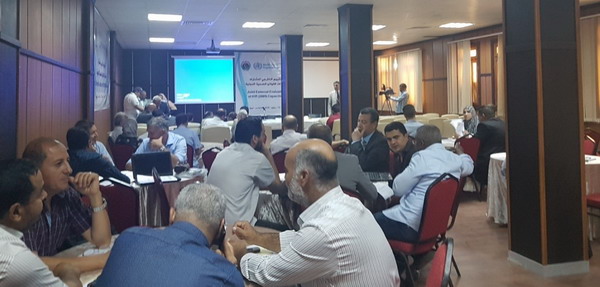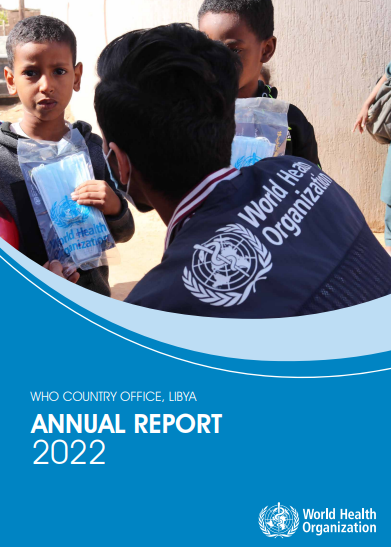
25 July 2018 – The joint external evaluation (JEE) is a key component of WHO's International Health Regulations (IHR 2005) monitoring and evaluation framework. It is a voluntary, collaborative, multisectoral process to assess country capacity in order to prevent, detect and rapidly respond to public health risks, whether occurring naturally or due to deliberate or accidental events.
The Ministry of Health of Libya requested a JEE, and WHO, in support of the National Center for Disease Control in Libya, conducted the process in Tripoli from 9 to 15 July 2018. The exercise involves a joint mission assessing 19 technical areas relevant to public health, including emergency response operations, linking public health and security authorities, biosafety and biosecurity, and points of entry.
A workshop was held, facilitated by experts from WHO, the Food and Agriculture Organization of the United Nations, representatives from international nongovernmental organizations, the Eastern Mediterranean Public Health Network, the Ministry of Health and other national authorities.
The Minister of Health Dr Omar Bashir Taher welcomed the JEE process and experts supporting national technical teams to assess current health-related programmes in Libya in meeting the requirements of the IHR. The most critical gaps within human and animal health systems in Libya were identified. Dr Badereddin Annajar, the Director-General of the National Centre for Disease Control, said that commitment had been renewed to meet these requirements, and added that WHO technical support was appreciated in strengthening collaboration and the flow of data between national stakeholders.
Dr Syed Jaffar Hussain, WHO Representative for Libya, praised Libya's commitment and the efforts of the National Center for Disease Control, in conducting the JEE with all of the current challenges being faced by the health system. The country was experiencing crisis and WHO would continue to support the health-in-all-policies approach at all levels. He noted that the development of the national action plan for health security would prioritize opportunities for enhanced preparedness and response, and also engage with current and prospective donors and partners to effectively target resources. He also praised the great achievement of Libya as being the first country to complete the JEE.





 Libya country office annual report, 2022
Libya country office annual report, 2022
